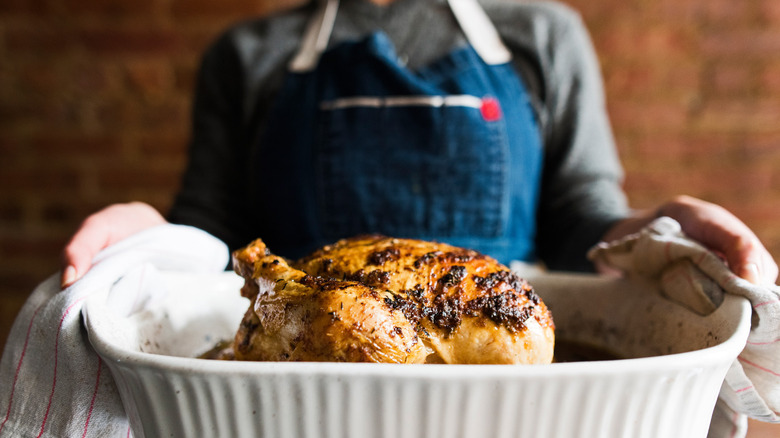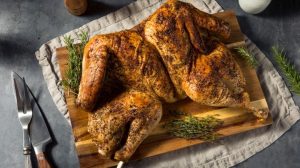Trussing a chicken may sound like an unnecessary step. Still, it serves a few important purposes: Tying the bird together helps keep both the extremities and the breast from drying out from overexposure when cooking. By keeping the chicken cavity shut, trussing prevents hot air from circulating inside and makes for a juicier bird (stuffing the cavity also helps here). Not to be overlooked, trussing also makes the bird a lot easier to handle, which is crucial if you’re moving it from a skillet to the oven or a resting rack.
It’s an easier task than you might think, so it’s worth taking 30 seconds to wrap that bird with kitchen twine. However, if you don’t have twine handy, don’t give up on the truss. You can trust without string.
Cut slits into the excess skin around the cavity of the chicken, cross the legs, and tuck them into the incisions. That’s it.
Be sure to make the slits as centered as possible. Otherwise, you risk having a leg rip through the skin when it shrinks in the oven.
See the video above for a visual guide, and never go untrussed again.







